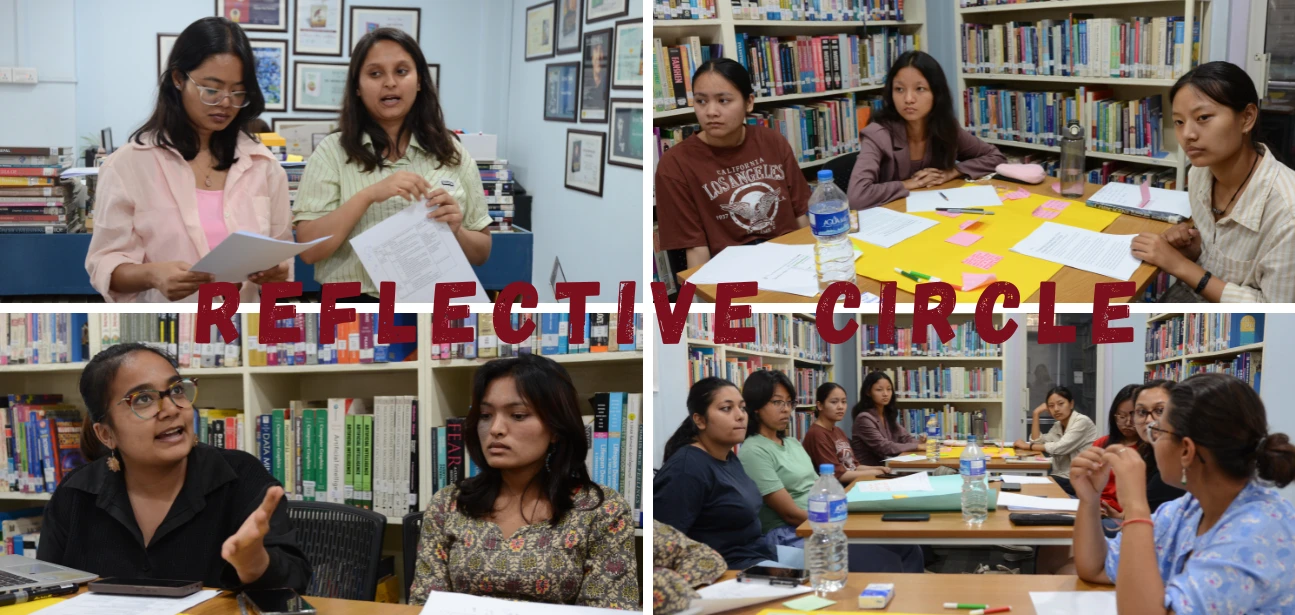
Part of what the Nepal Social Work Symposium stands for is creating space for students to be vigilant, curious, and critically engaged with social, emotional, and political issues. This calls for delving into thought-provoking, sometimes uncomfortable, conversations that challenge perceptions and deepen understanding.
On June 9, the School of Social Sciences (SoSS) hosted a Reflective Circle titled "War, Memory, and Solidarity: Reflecting on Israel-Palestine Through an Intergenerational Lens." This session invited participants to explore the complexities of the Israel-Palestine conflict; not just as a political issue, but as a deeply human one rooted in historical trauma, memory, and identity. The circle emphasized how understanding such conflicts requires connecting personal histories, family narratives, and the broader socio-political realities of those affected by war.
Through guided discussion, students reflected on their own experiences with family, identity, and national belonging, drawing parallels with the intergenerational trauma experienced by communities in conflict zones. The purpose of the session was to facilitate an empathetic and historically informed understanding of the long-standing humanitarian crisis, shaped by displacement, psychological warfare, and resilience.
This Reflective Circle empowered students not only to better understand the global dimensions of war and peace but also to examine their role as compassionate and informed global citizens.
(The School of Social Sciences (SoSS) offers a diverse range of undergraduate programs including Psychology, Sociology, and Social Work. With expert faculty and practical experiences, SoSS prepares students for meaningful careers in various fields of social service and research.)
We care about your data in our privacy policy

